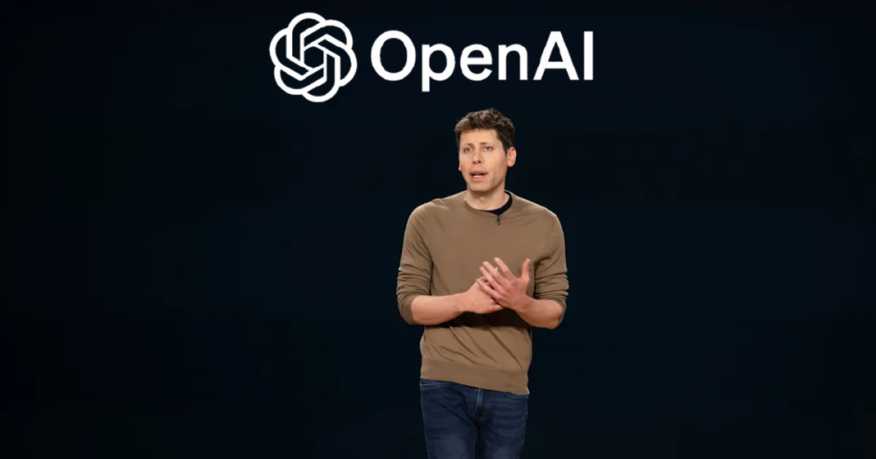OpenAI surpasses 1 million business customers globally, cementing its lead in enterprise AI adoption

OpenAI has reached a milestone that few companies in tech history can claim—over 1 million business customers worldwide. From startups to Fortune 500 giants, organizations are paying for OpenAI’s products at a pace that makes it the fastest-growing business platform ever recorded. The company credits the surge to a familiar force: more than 800 million weekly users already comfortable with ChatGPT, creating a natural on-ramp for enterprise adoption and measurable returns on investment.
The milestone came just eight months after OpenAI announced that ChatGPT had crossed 400 million users, up from 300 million at the end of 2024. That was before the rise of challengers like DeepSeek and Grok. Now, as competitors fight for attention, OpenAI’s lead in enterprise usage has only widened.
1 Million Companies Now Use OpenAI — Inside the Fastest Enterprise Adoption Curve Ever Recorded
“Today, we’re announcing that more than 1 million business customers around the world are directly using OpenAI—the fastest-growing business platform in history,” the company wrote in a blog post. “This includes all organizations that actively pay OpenAI for business use—either through ChatGPT for Work, or through direct consumption of our models through our developer platform. We’re proud to work with category leaders in industries like financial services, healthcare, retail, and more, where our technology is making intelligence central to their customer experiences, internal operations, and team-level workflows.”
Explosive Growth in Enterprise AI Adoption
OpenAI’s enterprise expansion has been nothing short of staggering. ChatGPT for Work now has over 7 million seats—a 40 percent increase in just two months. ChatGPT Enterprise, the company’s large-scale offering for corporate clients, has grown ninefold in a year. Back in September 2024, OpenAI had 1 million paying users across its Enterprise, Team, and Edu plans. By October 2025, some estimates placed that figure at 3 million, a reflection of how fast businesses are embracing the technology.
Revenue has followed suit. OpenAI crossed $10 billion in annual recurring revenue by June 2025, while in-app revenue climbed 591 percent year-over-year from March 2024 to March 2025. Analysts see the trajectory continuing upward, with projections of $125 billion in annual revenue by 2029 if adoption keeps pace.
Innovative Tools Fueling Growth
To keep up with the scale, OpenAI has been introducing new tools aimed at helping companies work smarter with AI. Company Knowledge allows ChatGPT to draw from sources like Slack, SharePoint, Google Drive, and GitHub to deliver cited answers and detailed reasoning. AgentKit lets teams build and deploy custom AI agents in days instead of months. Codex, the company’s code-generation system, has seen a tenfold rise in use since August and now integrates with Slack and programmatic controls via its SDK.
The company has also added Project Sharing and Project-Only Memory to Enterprise, Team, and Edu plans—tools that let organizations collaborate without exposing sensitive data. Multimodal products such as the Image Generation API and Sora 2 extend OpenAI’s reach across text, images, video, and audio workflows.
Real-World Impact of AI
Major companies are already weaving OpenAI’s models into their daily operations. Cisco reports that integrating Codex cut code review times by half and reduced project timelines from weeks to days. Lowe’s equipped more than 1,700 stores with Mylow Companion, an in-store app built on OpenAI models to help associates guide customers on home projects. Indeed used OpenAI technology to create its Invite to Apply feature, increasing job applications by 20 percent and hires by 13 percent. Intercom’s Fin customer-service agent has shortened development cycles and boosted response speed.
Other partnerships include Canva, Figma, Zillow, and Spotify, which have embedded their apps directly into ChatGPT. Meanwhile, Shopify, Etsy, Walmart, PayPal, and Salesforce are adopting OpenAI’s Agentic Commerce Protocol to create conversational shopping experiences. The client roster now reads like a cross-section of the Fortune 500: Amgen, Commonwealth Bank, Booking.com, Morgan Stanley, T-Mobile, Target, and Thermo Fisher Scientific are among those deploying OpenAI at scale.
Wharton Study Confirms Business Value of AI
A recent Wharton study lends data to the enthusiasm. Among 800 U.S. enterprise leaders surveyed, 75 percent reported positive ROI from AI investments, while fewer than 5 percent said returns were negative. Eighty-two percent now use generative AI weekly, up from 37 percent in 2023, and nearly half use it daily. Spending is climbing too— 88 percent plan to increase AI budgets in the coming year, and 72 percent track ROI through profitability and productivity metrics.
Yet the study shows that challenges remain. Almost half of respondents cited difficulty recruiting AI talent as their biggest hurdle, and 43 percent worried about “skill atrophy” as employees lean too heavily on automation. By 2026, most leaders expect to prioritize performance scaling and governance to maintain momentum.
The Bigger Picture
OpenAI’s milestone cements its position at the center of the AI economy. Standalone AI apps like ChatGPT have already drawn over a billion users, and the company is on track to reach another billion by year’s end. What began as a chatbot has evolved into a global enterprise platform reshaping how work gets done. As companies shift focus from hype to real outcomes, OpenAI stands as the benchmark for what mainstream AI adoption now looks like — widespread, profitable, and transforming business at every level.




